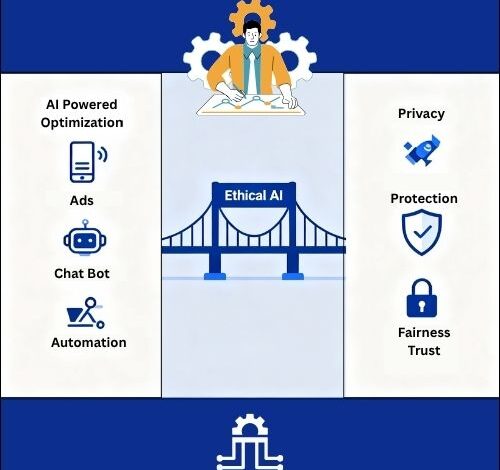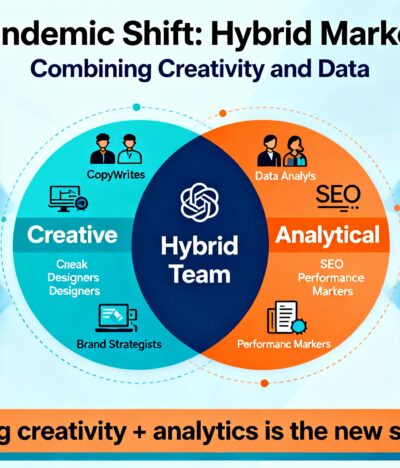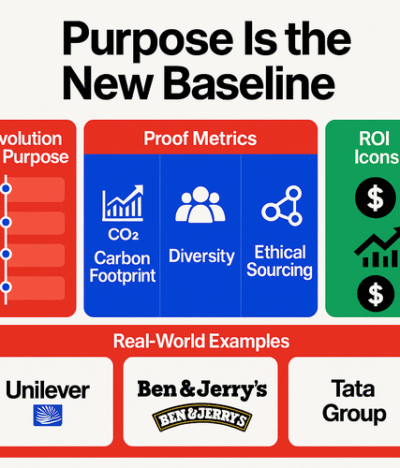The Double-Edged Power of AI
Ethical AI has become a defining topic in the era of digital transformation. Artificial Intelligence (AI) now drives everything from personalized ads and predictive algorithms to chatbots and automation — powering efficiency and precision like never before. Yet, as the world embraces this technological revolution, one pressing question remains: how much data is too much?
As companies optimize experiences, they walk a fine line between innovation and intrusion. Ethical artificial intelligence emerges as the bridge between these extremes — ensuring progress doesn’t come at the cost of privacy, fairness, or human trust.
The challenge is no longer whether to use AI, but how to use it responsibly and ethically.
The Rise of Ethical AI in a Data-Driven World
In today’s hyperconnected digital economy, every click, search, and purchase leaves a trace. Businesses use this data to enhance user experience, streamline decisions, and forecast behavior. However, the very algorithms that empower growth can also erode trust if used without accountability.
That’s where ethical AI takes center stage. It focuses on designing AI systems that are transparent, fair, and respectful of consumer rights. This shift isn’t just moral — it’s strategic. Consumers are becoming more privacy-aware, and brands that fail to protect data risk losing credibility and loyalty.
Ethical AI isn’t about restricting technology; it’s about guiding it. It ensures that optimization enhances user experience without crossing ethical or legal boundaries.
Optimization vs. Privacy: The Core Tension
Optimization thrives on data — the more data AI consumes, the smarter it gets. But consumer privacy demands boundaries. This creates a fundamental conflict: businesses want precision, while users want protection.
AI-driven personalization relies heavily on user data to predict preferences and behaviors. However, over-collection or misuse of this data can result in breaches, bias, and manipulation.
Examples of the Trade-Off
- E-commerce: Personalized product recommendations improve sales but often involve deep behavioral tracking.
- Healthcare: Predictive models save lives but require sensitive medical data.
- Marketing: Ad algorithms target audiences efficiently but may invade personal boundaries.
The ethical solution isn’t to abandon optimization but to design AI that optimizes responsibly — with transparency, consent, and accountability at its core.
Principles of Ethical AI
To achieve harmony between innovation and integrity, several foundational principles guide ethical AI development:
- Transparency: Consumers deserve to know when and how AI is influencing their experiences. Transparent systems clearly communicate data collection practices and algorithmic decisions.
- Accountability: Organizations must take responsibility for their AI models. If an algorithm produces biased or harmful outcomes, there should be a clear mechanism for redress and correction.
- Fairness: AI must avoid discrimination — whether in hiring, lending, or advertising. Ethical frameworks ensure that decisions are data-driven but human-reviewed for fairness.
- Privacy by Design: Building privacy safeguards into AI systems from the start ensures compliance and consumer confidence. Techniques like data anonymization, federated learning, and differential privacy allow optimization without exposing personal data.
- Human Oversight: AI should enhance human judgment, not replace it. Ethical AI ensures humans remain in control — especially in high-stakes areas like finance, healthcare, and governance.
The Role of Regulation and Governance
As ethical AI becomes central to business ethics, global regulators are stepping in. The EU’s AI Act, for instance, classifies AI applications by risk level and sets strict transparency requirements. In the U.S. and India, discussions on data protection laws and algorithmic accountability are shaping the future of digital ethics.
Governance frameworks don’t aim to slow innovation — they aim to protect it. Regulation creates clarity, setting ethical boundaries that prevent misuse while encouraging responsible development
Organizations that embrace compliance early on are not only future-proofing themselves but also signalling trustworthiness to their customers.
Balancing Innovation and Responsibility
Striking the balance between AI-driven optimization and privacy protection requires more than policies — it requires mindset shifts.
Here’s how companies can achieve that balance:
- Adopt Ethical Frameworks Early: Integrate fairness, privacy, and transparency into product design from day one.
- Empower Cross-Functional Teams: Involve ethicists, legal experts, and data scientists in AI strategy.
- Audit Algorithms Regularly: Continuous testing can uncover hidden bias or privacy vulnerabilities.
- Educate Teams and Consumers: Awareness fosters accountability — both inside and outside organizations.
When ethics and innovation move hand in hand, AI becomes not just powerful, but purposeful.
Case in Point: Ethical AI in Action
Several leading organizations are already proving that ethics and optimization can coexist.
- Microsoft’s Responsible AI Standard guides every AI deployment with principles of fairness and reliability.
- Google’s AI Principles prioritize privacy and inclusivity in product design.
- Adobe’s Content Authenticity Initiative ensures transparency in AI-generated media.
These examples show that ethical AI isn’t just a philosophy — it’s a competitive advantage. Companies that champion ethical AI practices earn user trust, regulatory goodwill, and long-term loyalty.
The Consumer’s Perspective: Trust is the New Currency
Consumers today value authenticity and transparency over aggressive personalization. They expect brands to use AI responsibly — not to manipulate, but to empower.
Ethical AI is key to building that trust. When users feel their data is respected and secure, they engage more openly and willingly. Privacy isn’t a barrier to growth; it’s the foundation of sustainable optimization.
The Future of Ethical AI
AI will continue to evolve — and so will its ethical challenges. The real question isn’t whether AI can optimize performance, but whether it can do so without compromising privacy, equality, or trust.
Ethical AI offers that middle ground. It ensures that progress is guided by principles, not shortcuts. As businesses adopt AI for efficiency and personalization, their responsibility to uphold privacy and transparency becomes non-negotiable.
In the age of intelligent systems, doing what’s right isn’t just ethical — it’s essential.



